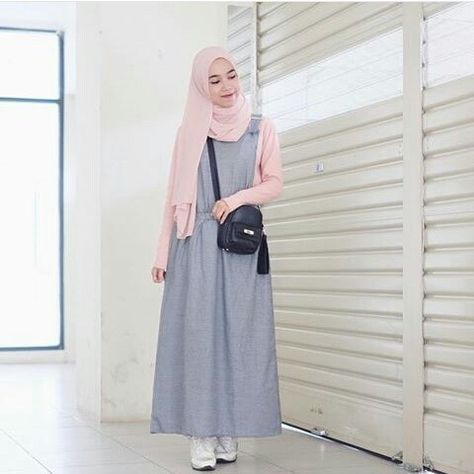Содержание
And intakes, too, appear to have risen by an extra cup with half of young adults now drinking three or more servings a day compared with 2019 when the average was just three daily servings. Global Database IWSR Global Database The world’s most comprehensive, consistent & reliable source of data for the global alcoholic beverage market. A few years ago, I would think nothing of endless mimosa-fuelled bottomless brunches and spending nights in the pub downing tequila shots. However, he refers to the ONS Social Trends survey data which suggests that 30% of 16-24s don’t drink alcohol at all (up from 20% 10 years ago). The2019 Diageo Drinks Report, published in April this year, revealed that where and when Brits are choosing to socialise is changing, with spirits well positioned to cater for these trends.
- “When I gave up six years ago there wasn’t really anything out there, apart from Beck’s Blue,” says Willoughby.
- Falling in line with this research, the age group with the highest number of recipients that chose ‘I do not drink alcohol’ (15%) was year olds, further proving that youth drinking culture is changing.
- Millie has also been known for selling a bunch of her incredible clothing, and donates funds to charities that support folk dealing with alcohol issues.
- Be the first to know about our latest products & special offers.
- Similarily, social media platforms such as Instagram are covered in impressive pictures of beautiful cities and landscapes which explore different cultures around the world.
For example, figures from the Office for National Statistics have shown that young adults are drinking less and even those who do drink don’t drink as much as previous generations did. Research also suggested that more than a fifth of adults in the UK don’t drink at all. Like any generation millennials are a varied bunch of people some will like to drink alcohol and some won’t. But there have been noticeable traits when it comes to millennial behaviour especially in regards to their drinking habits. Generation X also showed more of a preference for spirits over other categories, with 30% choosing spirits in cocktails or with mixers, and 11% preferring spirits neat.
The Wine & Spirits Show – Trade Sessions
These factors, teamed with a low disposable income, have shaped them into being more pragmatic and responsible young adults who are taking control of their health as well as their future. ”Yes, we still see young people drinking to excess, and binge drinking, but there is evidence that more and more young people, for cultural or other reasons, do not want to live like this. Social media probably has a role to play, as does image and the desire to look good and be healthy. https://sober-house.net/ So the fact young people are choosing to drink less bodes well for the future – and their parents and grandparents could learn from them. Willoughby says that while she’s seen a sharp incline in young people at her events, many who have never been drinkers, the health-conscious shift is hitting all ages and demographics. Drinkaware statistics show some three million people are trying to moderate their alcohol, while 2018 saw 4.5 million people take part in Dry January.
This openness makes it harder to be one thing or the other and to choose between option A and option B. Instead, young people are more likely to choose the middle ground or not choose at all. “Younger tea drinkers are adventurous about trying new teas, particularly matcha, oolong, peppermint and hibiscus. With home working set to continue as part or all of the working week for a large majority of the UK, and a younger generation discovering the pleasures of a relaxing brew, it looks like tea breaks are here to stay”. As an added bonus, these smaller formats are more likely to encourage trial among adventurous consumers who don’t want to commit to an entire bottle. This is undoubtedly pushing canned wine into the market more quickly, as its low price point (often just USD $4–$7 per can) makes it an easy sell to new consumers.

Rather than sleeping in and nursing a hangover all weekend, leaving the alcohol behind gives millennials the time to take part in enriching activities and take control of their health. Young adults are also more upfront about suggesting friends with alcohol eco sober house boston problems seek help. Almost half (48%) of respondents aged polled by Priory say they would feel comfortable suggesting a friend sought professional help if they suspected they were drinking too much, compared to less than a third (30%) of those aged 55-64.
A Modern Guide to Catering for the needs of the Mindful Consumer
Data on the sale of alcohol-free drinks , has found that there is a dwindlinginterest in drinking alcohol and binge drinkingwith nearly a third of young people declaring they are teetotal and alcohol-free. In tourism, young people’s attitudes towards holiday destinations have changed over the last decade. They are less inclined to go on beach and party holidays and are more interested in picturesque city breaks, where they can have beautiful experiences and explore different cultures. Evidence of this is seen by the fact that the once popular holiday provider Club 18 – 30 was swapped out for ‘Cook’s Club’ in 2018, which uses culture and ‘vegan delights’ to appeal to Generation Z and young Millennials. “Wineries need to continuously innovate in order to retain market share, especially that of the younger consumer segment,” remarks Rogers.
“When I gave up six years ago there wasn’t really anything out there, apart from Beck’s Blue,” says Willoughby. Heading further west to Cardiff, the drink of choice was awarded to ‘Cocktails’ taking 17.9% of the vote. The city has a plethora of classy cocktail bars, promising to shake up a Saturday night on the tiles. From Hackney to Hammersmith, London is awash with pubs aplenty, which could explain why 18.8% of the capital chose beer as their number one. Home to the Great British Beer Festival, London turns into a mecca for beer lovers everywhere once a year, with people travelling from far and wide to sample the best artisan beers around. Thanks to the pandemic temporarily calling time on mass boozy occasions and dark, dingy basement bars, I’ve realised I never really actually enjoyed them that much.
She’s a great advocate for sobriety, but her work goes so far beyond this. She champions independent thinking, and provokes us to challenge binary conversation around complex issues. Africa embraces nuanced discussion, and challenges oversimplified online dialogue around important issues. Check on rehab near me.
Who knows more about drinking responsibly?
• Explain to people where they can access a bit of extra support if they are struggling to take control of their drinking on their own. It can heighten family tensions, get in the way of clear communication, and mean we are less present for each other, including our children. And if a loved one is drinking heavily, it can cause huge worry.
But while it might be surprising to some people in some cases it kind of was. While 32% of respondents said they preferred beer, 11% said they would rather drink straight spirits, 28% said they preferred mixed drinks or cocktails and 25% said they preferred wine. Millennial drinkers in the US showing a greater penchant for spirits compared to beer and wine, according to a new survey. Priory aspires to deliver the highest quality care in the UK across our range of services, which include acute mental healthcare, addiction treatment and low and medium secure facilities.
UKTIA works on behalf of the world’s major tea producing and exporting countries, UK tea packers and allied UK companies who support the tea and herbal infusions supply chains. The UKTIA provides support and information of a technical, scientific and regulatory nature. In comparison, separate research by Sheffield University found that alcohol consumption during the 2020 lockdown actually fell in all adult age groups. “It’s all about giving the choice to your consumer and empowering them to make a decision. As long as it’s their decision to drink or not, it’s the right decision.”
- Millennials didn’t kill alcohol but they did make people rethink its importance and that is not necessarily a bad thing.
- Not drinking has gained cultural visibility with events such as Dry January and Sober October, and the stigma around not drinking has become less potent.
- Global Database IWSR Global Database The world’s most comprehensive, consistent & reliable source of data for the global alcoholic beverage market.
- This is reflected in recent data which shows that only 66% of Generation Zers consider themselves as exclusively heterosexual compared with 71% of Millennials and 85% of Generation X.
- Of those questioned, a further 21% of millennials said they favoured spirits neat, while 25% opted for beer and 22% chose wine.
This generation showed more of a thirst for beer (30%) compared to millennials, but wine was just as popular across both demographics (22%). Also known as Generation Y, millennials are typically people who were born from the early 1980s, up to the mid -1990s. These people are often referred to as the generation that has caused one of the biggest increases in open-minded approaches to economics and politics, as well as the further implementation of media, technology and communications. Due to the age of this group, many millennials have experienced the great recession, and it has had an impact on a variety of aspects of their lives.
Looking To Buy Alcohol Free & Non Alcoholic Beer?
Major retailers and bars are listening up, and consumers should get ready to see more of these grown-up alternatives stocked in their locals. There’s an interesting correlation too with recent interest in the four-day working week. Gen Z has been one of the most prominent generations pushing for that change.
The growing interest in non-alcoholic drinks is supported by the younger generations like millennials and Generator Z or the post-millennials. Although alcohol will never go out of fashion, mixology is about being skilled at crafting drinks regardless of whether they contain booze or not. With millennials choosing to drink less and better when they do, it’s time to shake up the cocktail scene and encourage an inclusive drinking culture that’s built on quality, creativity and craftsmanship. With many outlets reporting that “millennials are driving the market for non-alcoholic beer” and healthier low-alcohol drinks. It’s important to say that millennials haven’t abandoned drinking alcohol completely but they certainly seem to have a different attitude towards alcohol than previous generations.
- This generation showed more of a thirst for beer (30%) compared to millennials, but wine was just as popular across both demographics (22%).
- Gen Z has been described as the most austere generation since the Second World War, with moderation trends likely to have a big impact not just across alcohol, but all FMCG categories.
- Meanwhile, Campari has only recently introduced its non-alcoholic aperitivo, Crodino, popular in Italy since the Sixties, to the UK.
- Some of the key trends in the drinks packaging industry for millennials focus on being green.
“I think with online and with social media you’re able to find your tribe a little bit easier,” says Willoughby. Succumbing to stereotypes, cider was named the favourite alcoholic beverage for 18.2% of Bristolians; home of the fermented apple alcohol. Surprisingly, it wasn’t a traditional Scrumpy that topped the list of cider favourites, but instead ‘Fizzy Mixed Fruits’ came out top as voted by 11% of the cider drinkers. A survey of 1,023 millennials found that alcohol consumption is on the decline in the younger generation, with millennials consuming just five units a week on average. On the topic of Gen Z – the cohort born after 2000 – Halstead says it is too early to say what the impact on the wine industry will be, as this group is only just reaching legal drinking age.
Kate was a self-confessed party girl, and proves that you can change that identity if you want to. The Sober Millennials encourage people to find new ways of socialising without alcohol, and arrange a number of events (pandemic permitting!). Millie Gooch is a journalist and founder of Sober Girl Society. She published her book The Sober Girl Society Handbook last year to rave reviews.
The internet is divided over its opinions on something millennials are doing, because what else is new? When we look back at our younger years, it’s a common theme among many to remember spending a lot of time meeting friends in pubs and bars. Whether or not you were drinking alcohol, it was a place to hang out and catch up with your closest friends.
 Sahabat Remaja Menuju Takwa Portal Sahabat Remaja Menuju Takwa
Sahabat Remaja Menuju Takwa Portal Sahabat Remaja Menuju Takwa





